Logical Reasoning World Around Us Worksheets for Ages 4-9
5 filtered results
-
From - To
Discover "Logical Reasoning World Around Us Worksheets for Ages 4-9" - a delightful collection of activities designed to develop critical thinking and problem-solving skills in young learners. Each worksheet encourages kids to explore patterns, sequences, and real-world scenarios, making logic fun and interactive. Perfectly tailored for children ages 4-9, these educational resources are ideal for both classroom and home use, nurturing essential skills through engaging exercises. With our thoughtfully crafted worksheets, children will build a strong foundation in logical reasoning, fostering a love for learning that lasts a lifetime. Explore now and watch their potential soar!
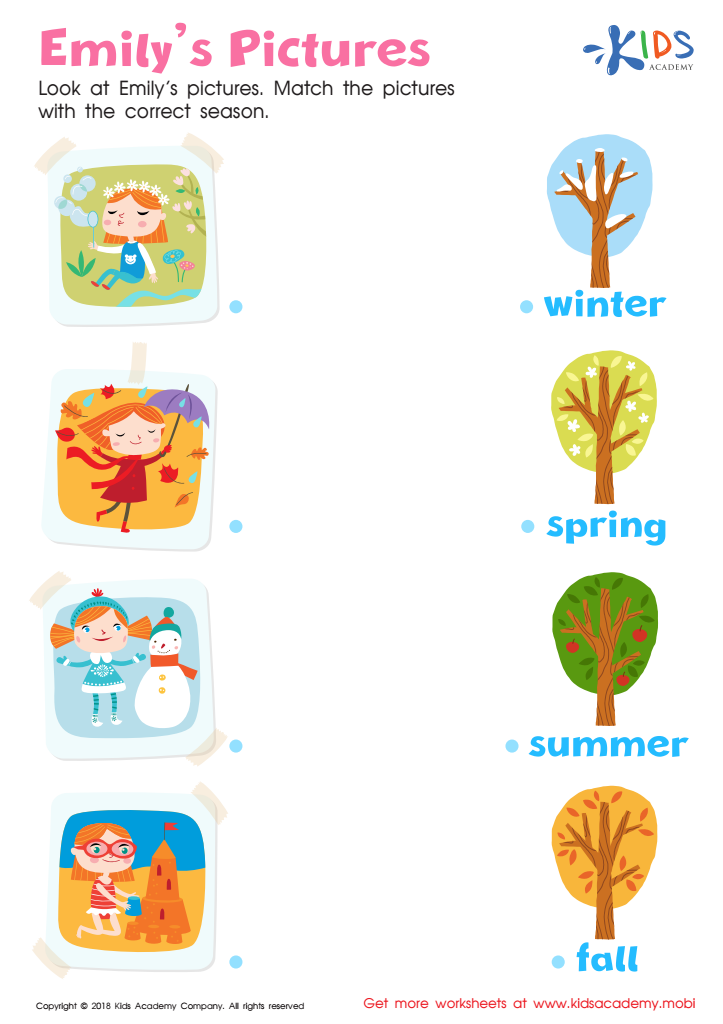

Emily's Pictures Worksheet
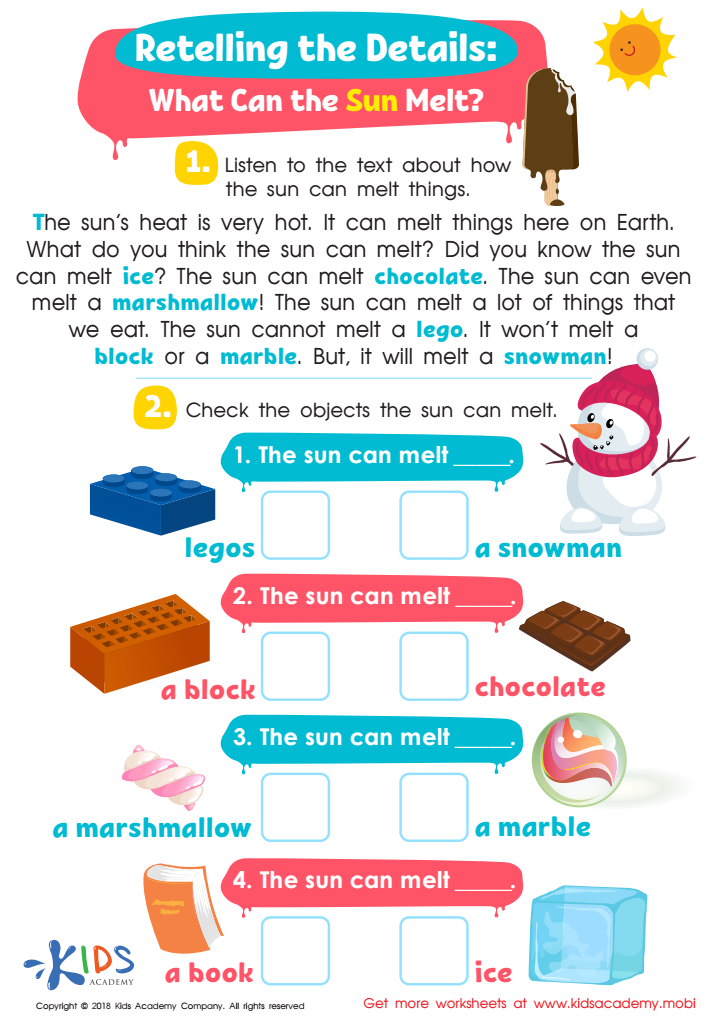

Retelling the Details: What Can the Sun Melt? Worksheet
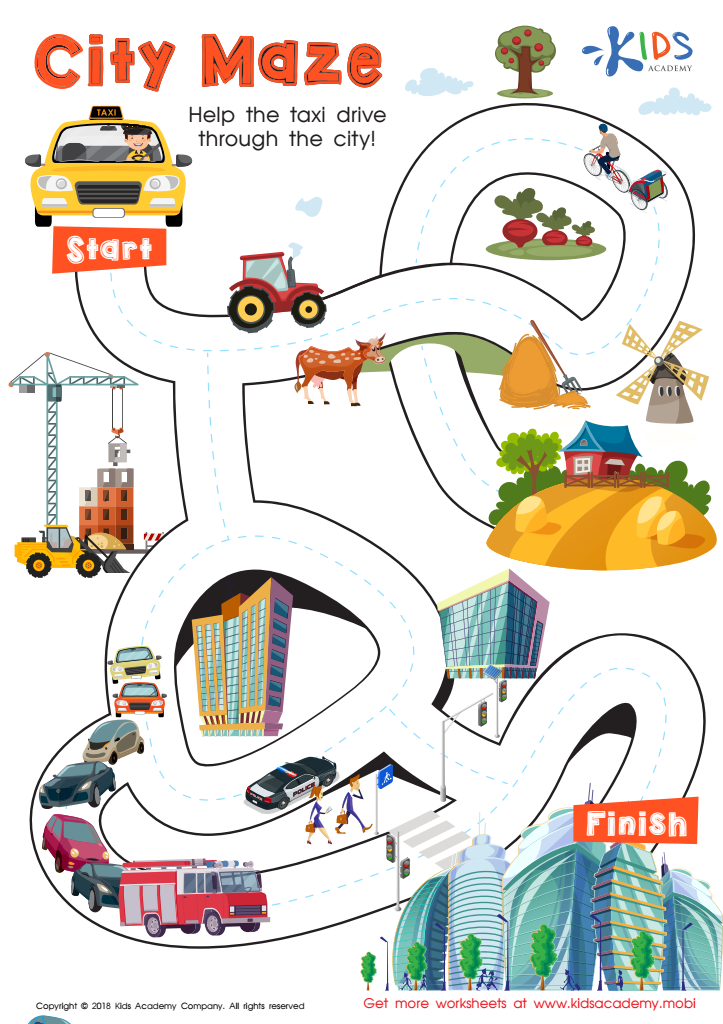

City Maze Worksheet
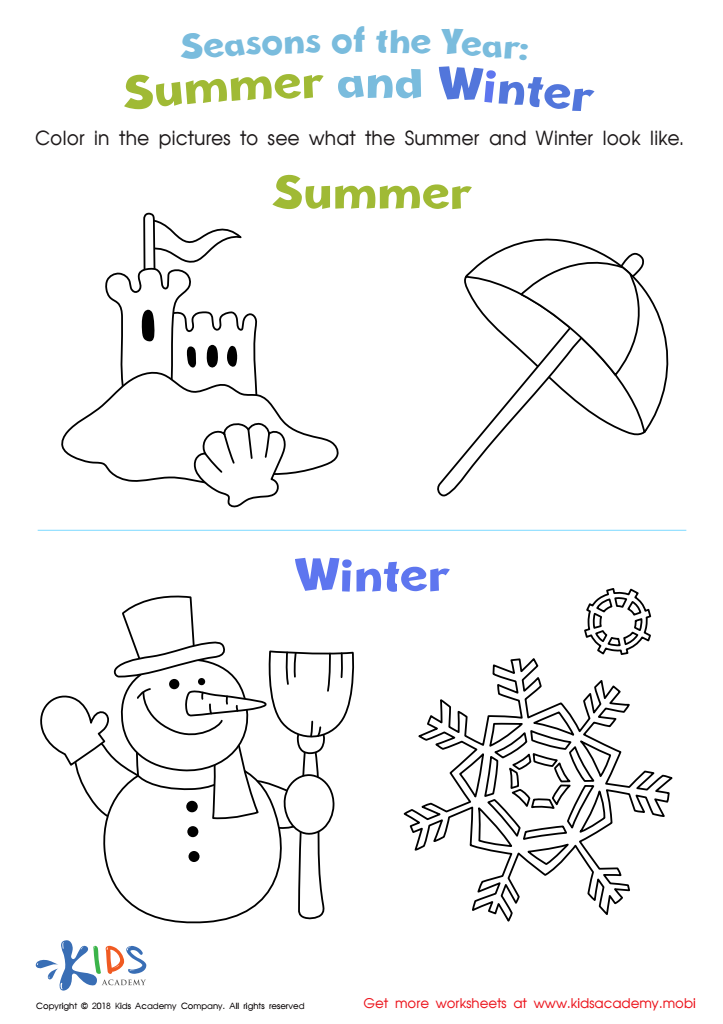

Summer and Winter Worksheet
Parents and teachers should care about fostering logical reasoning in children aged 4-9 because it forms the foundation for problem-solving, critical thinking, and decision-making skills that are essential in daily life. During these formative years, children's brains are highly receptive to new information, making it the perfect time to instill logical reasoning skills.
Logical reasoning helps young children understand cause and effect relationships, which are crucial for grasping basic concepts in both academic subjects and everyday situations. For example, understanding that feeding a plant water and sunlight helps it grow lays groundwork for future scientific learning. Moreover, logical reasoning nurtures curiosity and encourages children to ask questions, seek evidence, and draw meaningful conclusions, promoting lifelong learning.
Incorporating logical reasoning activities can also improve a child's self-confidence. As they solve puzzles, engage in games that require strategic thinking, or identify patterns, they learn to confront challenges with a positive approach. Socially, these skills foster better communication and cooperation, as children learn to explain their thoughts clearly and listen to others' viewpoints.
Ultimately, encouraging logical reasoning in young children equips them with indispensable tools for academic achievement and personal growth, empowering them to navigate the world with enhanced understanding and poise.
 Assign to My Students
Assign to My Students
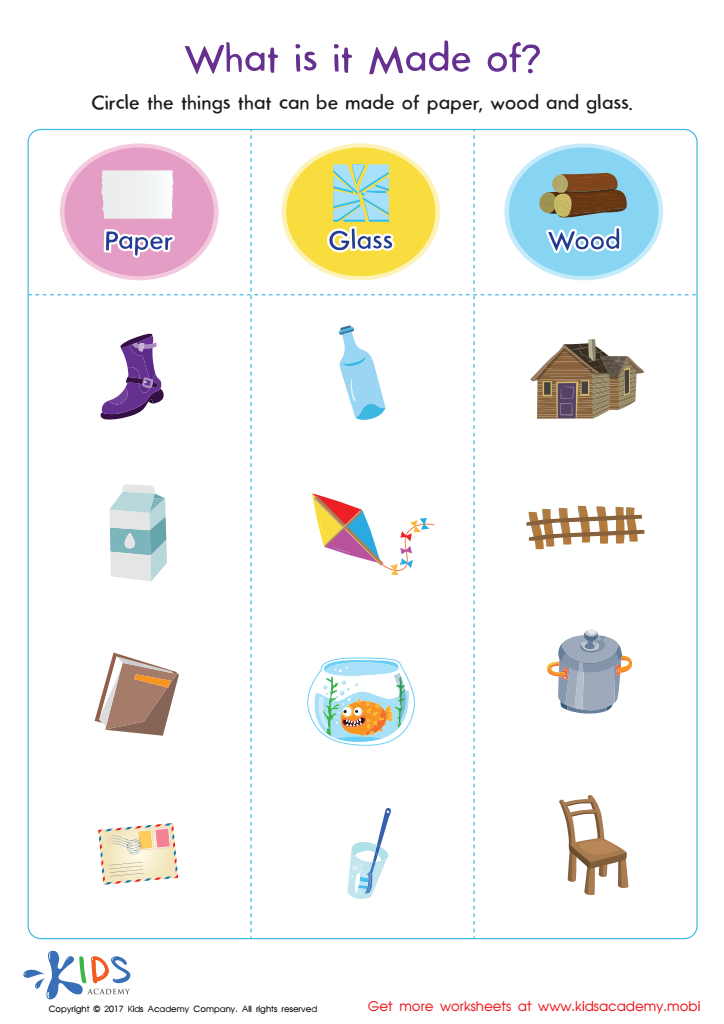


.jpg)



.jpg)









